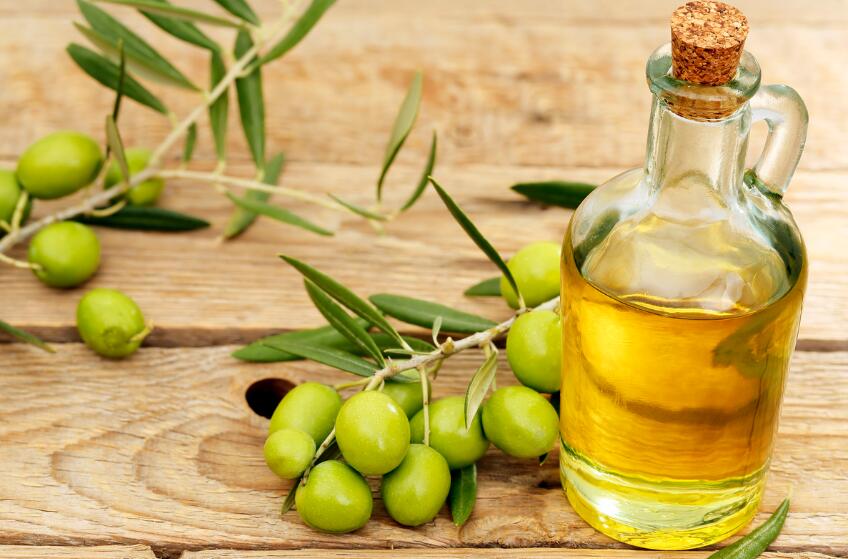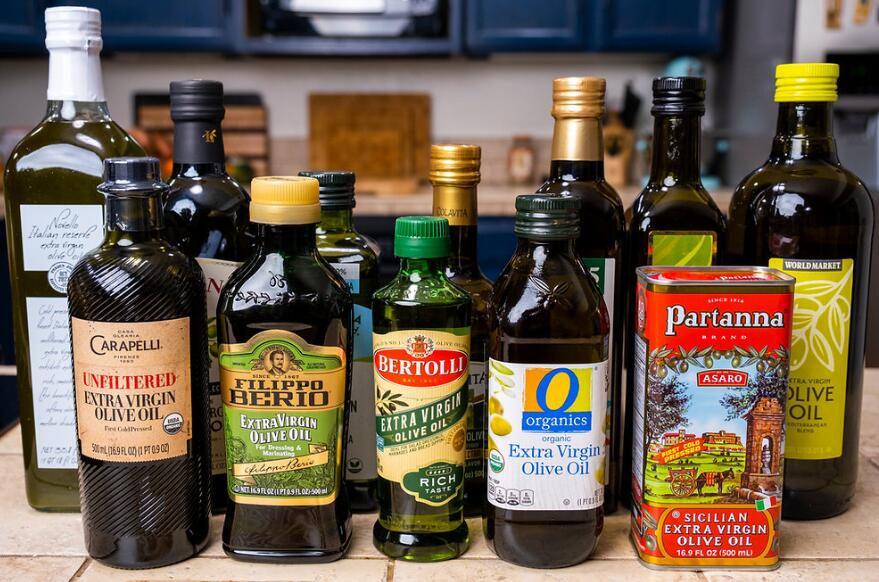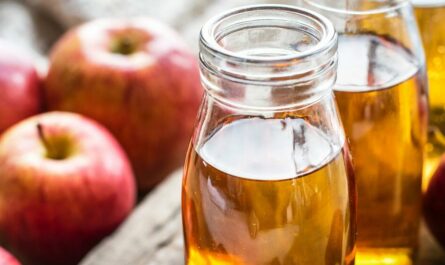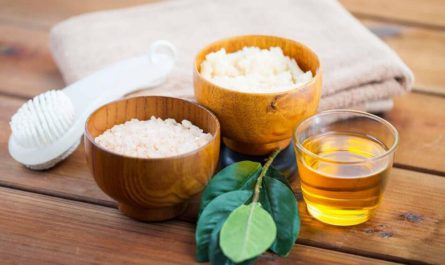Olive oil is a staple in many kitchens and the Mediterranean diet. It is a healthy fat with numerous benefits, such as weight loss, improved skin health, and better digestion. However, many studies have also shown that drinking large amounts of olive oil may lead to negative side effects and potential health risks. This article will discuss 16 possible dangers and side effects of drinking olive oil daily. We will also provide some healthier ways to incorporate this nutritious fat into your diet.

What is Olive Oil?
Olive oil is a type of vegetable oil extracted from olives, the fruit of the olive tree. The oil is produced by pressing whole olives and extracting the fatty liquid. There are several grades of olive oil, including:
- Extra Virgin Olive Oil (EVOO): The highest quality olive oil, made from pure, cold-pressed olives without the use of chemicals or excessive heat. EVOO has a distinct flavor profile and contains the highest concentration of beneficial compounds, such as polyphenols and antioxidants.
- Virgin Olive Oil: Similar to EVOO but with slightly lower quality due to minor defects in taste or aroma. Virgin olive oil also undergoes minimal processing and retains most of its natural compounds.
- Refined Olive Oil: Oil that has been chemically treated to remove impurities and neutralize taste and aroma. Refined olive oil lacks the beneficial compounds found in EVOO and virgin olive oil and is often blended with a small amount of EVOO to enhance its flavor.
The quality of olive oil can be affected by factors such as the olive variety, harvesting methods, processing techniques, and storage conditions.
4 Common Dangers and Side Effects of Drinking Olive Oil
1. Potential Allergic Reactions to Olive Oil
Some people may have an olive or olive oil allergy, which can cause a range of symptoms from mild to severe. These symptoms can include:
- Itching
- Swelling of the lips, tongue, or throat
- Hives
- Difficulty breathing
- Anaphylaxis (a severe, potentially life-threatening allergic reaction)
If you experience any of these symptoms after consuming olive oil, it’s crucial to seek medical attention and avoid olive oil in the future.
According to a study published in the Journal of Allergy and Clinical Immunology01699-1/fulltext), olive oil is one of the most common food allergens in Mediterranean countries, where olive oil consumption is high. The study found that up to 0.4% of the population in these countries may have an olive oil allergy.
2. Olive Oil’s Impact on Blood Sugar and Diabetes
While olive oil can be a healthy addition to a balanced diet, it may lower blood sugar levels too much in some people, particularly those with diabetes. This can interact with diabetes medications and increase the risk of hypoglycemia (low blood sugar).
A study published in the journal Diabetes Care found that consuming olive oil with a meal reduced post-meal blood sugar levels more than consuming a meal without olive oil.
While this may be beneficial for some people, diabetics should monitor their blood sugar closely when adding olive oil to their diet and consult with their healthcare provider to ensure proper management of their condition.
| Meal | Blood Sugar Level (mg/dL) |
|---|---|
| Meal without olive oil | 145 |
| Meal with olive oil | 122 |
Table 1: Post-meal blood sugar levels with and without olive oil consumption.
Additionally, some studies have suggested that the polyphenols in extra virgin olive oil may help improve insulin sensitivity and reduce the risk of type 2 diabetes.
A review published in the journal Nutrients found that consuming olive oil as part of a Mediterranean diet was associated with a lower risk of developing type 2 diabetes compared to a low-fat diet.
3. Risks of Drinking Poor Quality or Rancid Olive Oil
Not all olive oils are created equal. Low-quality olive oil may be cut with cheaper, less healthy oils, such as soybean or canola oil. These oils can be high in harmful trans fats and may not provide the same health benefits as pure, high-quality olive oil.
Additionally, rancid olive oil can contain harmful compounds that promote inflammation in the body. Rancid olive oil occurs when the oil is exposed to light, heat, or air for an extended period, causing it to oxidize and break down. Consuming rancid olive oil can cause digestive distress, nausea, and an upset stomach.
To avoid these risks, it’s essential to choose high-quality, extra virgin olive oil from reputable sources. Look for oils that are stored in dark glass bottles and have a recent harvest date. Proper storage in a cool, dark place can also help prevent olive oil from becoming rancid.
4. Medication Interactions with Olive Oil
Olive oil can interact with certain medications, such as blood thinners, and may increase the risk of bleeding or affect drug absorption and effectiveness. Some specific medications that may interact with olive oil include:
- Warfarin (Coumadin)
- Clopidogrel (Plavix)
- Aspirin
- Non-steroidal anti-inflammatory drugs (NSAIDs)
If you are taking any medications, it’s always best to check with your doctor or pharmacist about potential interactions with olive oil or any other dietary changes.
A study published in the Journal of Clinical Pharmacology found that consuming olive oil with the blood thinner warfarin increased the risk of bleeding compared to consuming warfarin alone.
The study recommended that patients taking warfarin should be cautious when consuming olive oil and should have their blood clotting levels monitored closely.

12 Additional Dangers and Side Effects of Drinking Olive Oil
1. Increased Risk of Certain Cancers
While olive oil is generally considered a healthy fat, some studies have suggested that consuming high amounts of olive oil may increase the risk of certain cancers, particularly breast cancer.
A study published in the International Journal of Cancer found that women who consumed more than one tablespoon of olive oil per day had a 28% higher risk of developing breast cancer compared to women who consumed less than one tablespoon per day.
2. Impaired Liver Function
Consuming large amounts of olive oil may also impair liver function, particularly in individuals with existing liver conditions. A study published in the Journal of Hepatology00290-7/fulltext) found that a high intake of olive oil was associated with increased liver fat accumulation and a higher risk of non-alcoholic fatty liver disease (NAFLD).
3. Increased Risk of Gallstones
Drinking excessive amounts of olive oil may increase the risk of developing gallstones. Gallstones are hardened deposits of digestive fluid that can form in the gallbladder, causing pain and other complications.
A study published in the American Journal of Clinical Nutrition found that a high intake of olive oil was associated with a higher risk of gallstone formation.
4. Potential for Nutrient Deficiencies
While olive oil is a healthy fat, it is not a significant source of essential nutrients like vitamins and minerals. Consuming large amounts of olive oil in place of other nutrient-dense foods may lead to nutrient deficiencies over time. So It’s important to consume olive oil as part of a balanced diet that includes a variety of nutrient-rich foods.
5. Increased Risk of Foodborne Illness
Olive oil, like any other food, can be contaminated with harmful bacteria if not handled or stored properly. Consuming contaminated olive oil can lead to foodborne illnesses, such as salmonella or E. coli infections.
To reduce the risk of foodborne illness, always purchase olive oil from reputable sources and store it according to the manufacturer’s instructions.
6. Potential for Skin Irritation
While olive oil is often used as a natural moisturizer for the skin, some people may experience skin irritation or allergic reactions when applying olive oil topically. If you have sensitive skin or are prone to allergies, it’s best to perform a patch test before using olive oil on your skin and discontinue use if any irritation occurs.
7. Risk of Choking
Drinking olive oil straight from the bottle or in large quantities can pose a choking hazard, especially for children and older adults. The thick, viscous nature of olive oil can make it difficult to swallow, potentially leading to coughing, gagging, or aspiration into the lungs.
Always consume olive oil in moderation and as part of a meal or mixed into other foods to reduce the risk of choking.
8. Environmental Concerns
The increasing demand for olive oil has led to the expansion of olive tree cultivation, which can have negative environmental impacts. In some regions, the intensive farming of olive trees has contributed to deforestation, soil erosion, and loss of biodiversity.
Additionally, the production of olive oil generates waste products, such as olive mill wastewater, which can pollute waterways if not properly managed. Choosing olive oil from sustainable and environmentally responsible producers can help mitigate these concerns.
9. Potential for Adulteration
The popularity and high value of olive oil have made it a target for adulteration and fraud. Some unscrupulous producers may dilute olive oil with cheaper, lower-quality oils or mislabel the product to mislead consumers.
Adulterated olive oil may not provide the same health benefits and can even pose health risks if the added oils are of poor quality or contain harmful substances.
To avoid adulterated olive oil, purchase from trusted sources and look for certifications of authenticity, such as the North American Olive Oil Association (NAOOA) or the International Olive Council (IOC) seals.
10. Interactions with Herbs and Supplements
In addition to interacting with medications, olive oil may also interact with certain herbs and dietary supplements. For example, consuming large amounts of olive oil alongside herbs or supplements that have blood-thinning properties. This includes such as ginkgo biloba, garlic, or vitamin E, which may increase the risk of bleeding and bruising.
If you are taking any herbs or supplements, consult with a healthcare professional before significantly increasing your olive oil intake to ensure safety and avoid potential interactions.
11. Tooth Decay and Enamel Erosion
Drinking acidic beverages like soda, fruit juice, and wine can erode tooth enamel over time. Surprisingly, olive oil may also have this effect when consumed in large quantities.
The high acidity of some olive oils, particularly lower-quality ones, may soften and erode tooth enamel with frequent exposure.
This can increase the risk of tooth sensitivity, cavities, and decay. To protect your pearly whites, it’s best to consume olive oil with food rather than drinking it straight.
12. Interference with Blood Clotting
The monounsaturated fats in olive oil can help reduce the risk of heart disease by improving cholesterol levels and reducing inflammation. However, consuming too much olive oil may interfere with normal blood clotting[1].
This can be especially problematic for individuals taking blood-thinning medications like warfarin or aspirin, as it may increase the risk of bleeding and bruising.
If you are on any blood-thinning therapies, it’s important to discuss your olive oil intake with your healthcare provider to ensure it doesn’t interfere with your medication’s effectiveness.
Healthier Ways to Include Olive Oil in Your Diet
While drinking large amounts of olive oil can be harmful, incorporating olive oil into your diet in moderation can provide numerous health benefits. Some healthier ways to include olive oil in your diet include:
- Drizzling olive oil over salads, vegetables, and finished dishes
- Using olive oil in place of less healthy fats, such as butter or margarine, when cooking and baking
- Limiting your intake to 1-2 tablespoons per day as part of a balanced diet
- Choosing extra virgin olive oil for maximum health benefits, as it contains higher levels of beneficial polyphenols and antioxidants
The Mediterranean Diet Pyramid recommends consuming olive oil daily as the primary source of added fat. This diet, which is rich in fruits, vegetables, whole grains, legumes, and fish, has been associated with numerous health benefits, including a reduced risk of heart disease, certain cancers, and cognitive decline.

When to See a Doctor?
If you experience any of the following symptoms after drinking olive oil, it’s important to consult a healthcare professional:
- Persistent digestive issues, such as abdominal pain, diarrhea, or nausea
- Difficulty breathing or swallowing
- Allergic reaction symptoms, such as rash, itching, or swelling
- Unexplained weight changes
Frequently Asked Questions
1. Can drinking olive oil cause long-term health problems?
Drinking large quantities of olive oil long-term may lead to weight gain and increased risk of heart disease due to its high calorie and fat content. Moderation is key.
2. Can you be allergic to olive oil?
Though rare, olive oil allergies can occur and may cause skin irritation, digestive problems, or even anaphylaxis in severe cases. Seek medical attention for serious symptoms.
3. Who should avoid drinking olive oil?
People with digestive conditions like IBS, GERD, gallstones, or a history of pancreatitis may want to avoid drinking olive oil as it can worsen symptoms. Always listen to your body and consult a doctor.
4. Does drinking olive oil on an empty stomach have benefits?
There is no scientific evidence to suggest that drinking olive oil on an empty stomach has any specific health benefits. Some people may experience digestive discomfort when consuming olive oil without food.
5. Is it better to drink olive oil in the morning or at night?
There is no evidence to suggest that drinking olive oil at a specific time of day offers any particular benefits. However, consuming a large amount of olive oil on an empty stomach may lead to digestive discomfort, so it’s best to incorporate it into meals or consume it with food.






